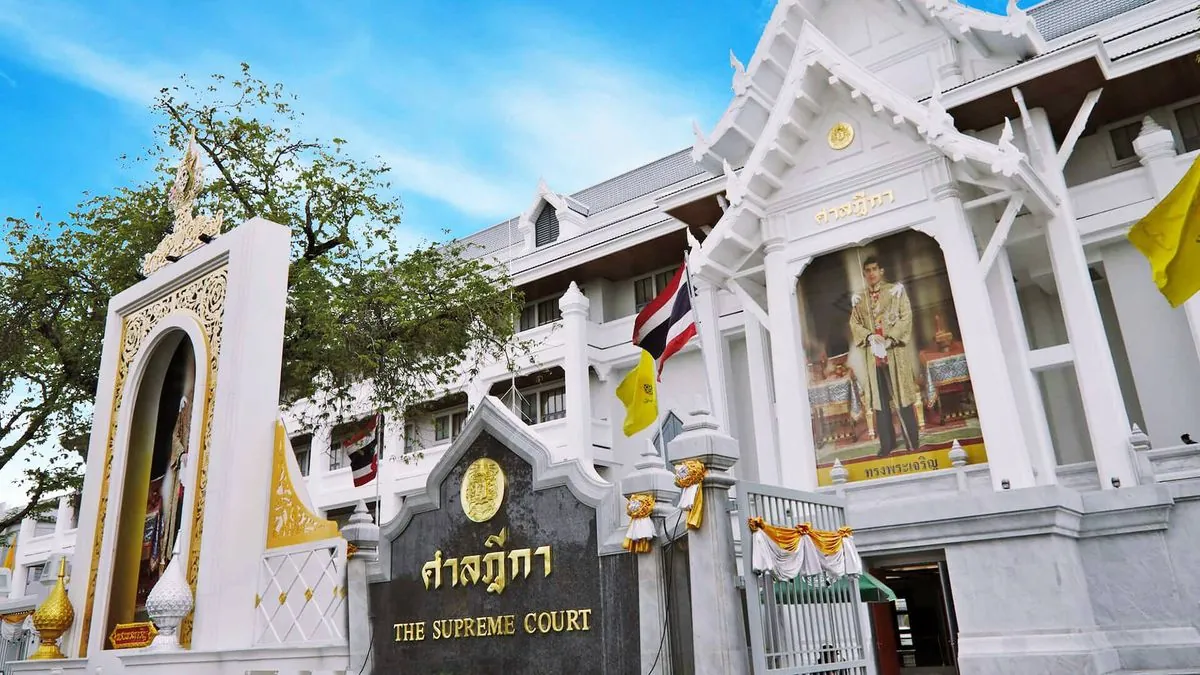Thai PM Faces Critical Court Ruling Amid Political Tensions
Thailand's Prime Minister Srettha Thavisin awaits a crucial court decision that could remove him from office. The case, brought by ex-senators, highlights ongoing political divisions in the country.

Thailand's political landscape is bracing for a pivotal moment as Prime Minister Srettha Thavisin faces a critical court decision on August 14, 2024. The case, initiated by former senators appointed by the military, alleges that the Prime Minister violated the constitution in a cabinet appointment.
This legal challenge underscores the persistent divisions in Thai politics, reflecting a long-standing conflict between the conservative-royalist establishment and parties with broad popular support, such as Srettha's ruling Pheu Thai party. Thailand's complex political history includes 20 constitutions since 1932 and 13 successful coups, highlighting the nation's struggle for stable governance.
Prommin Lertsuridej, the Prime Minister's chief of staff, expressed confidence in the outcome, stating, "We are very confident because we did everything as per the legal procedure." The case centers on the appointment of Pichit Chuenban, a former lawyer for the influential Shinawatra family, to the cabinet. Critics argue this appointment fails to meet ethical standards due to Chuenban's brief imprisonment for contempt of court.

The Constitutional Court of Thailand, established in 1997, will determine Srettha's fate. If removed from office, a new government would need to be formed, potentially leading to significant political upheaval. This uncertainty has already impacted financial markets and added pressure to Thailand's economic recovery efforts.
Despite these challenges, Srettha continues his duties, recently overseeing a beach conservation project in Phuket to boost tourism, a sector that accounts for about 20% of Thailand's GDP. This focus on economic recovery is crucial, given Thailand's position as the world's largest rice exporter and its remarkably low unemployment rate, often below 1%.
The current political tensions are set against a backdrop of recent events, including the court-ordered dissolution of the Move Forward party, the largest in parliament, just one week prior to Srettha's impending ruling. This decision reflects Thailand's complex history of court-mandated party dissolutions, a practice that has significantly shaped the country's political landscape.
Prommin, reflecting on his experience with previous party dissolutions, cautioned against the practice, stating, "We have been the victim before. At least three times, we have already been dissolved." This sentiment echoes concerns about the impact of such decisions on democratic representation in a country where the military has played a significant role in politics since the 1930s.
As Thailand navigates these political challenges, it also faces demographic shifts, with projections indicating that over 20% of the population will be 65 or older by 2031. This aging population adds another layer of complexity to the country's political and economic future.
The outcome of the August 14 ruling will be closely watched, not only for its immediate impact on Srettha's premiership but also for its broader implications on Thailand's political stability and economic trajectory.


































